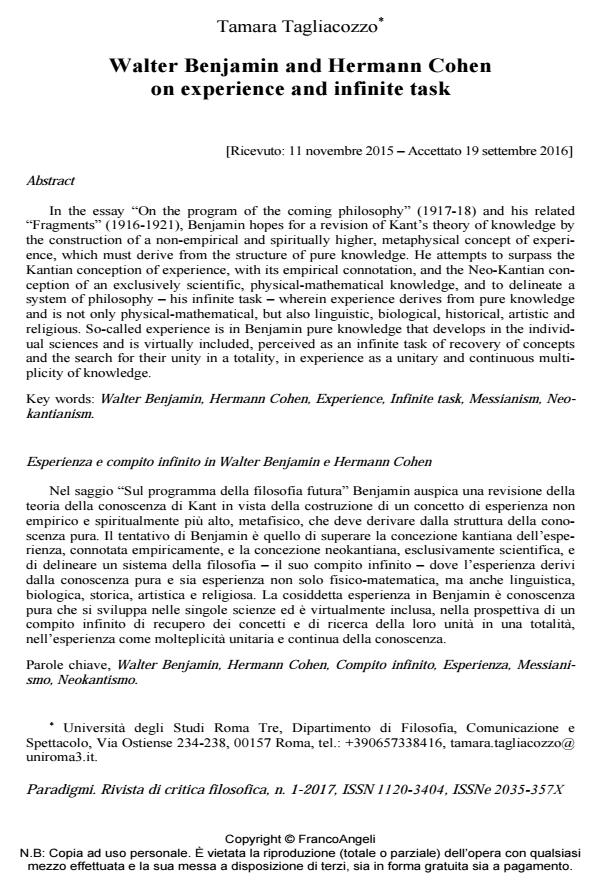Walter Benjamin and Hermann Cohen on experience and infinite task
Journal title PARADIGMI
Author/s Tamara Tagliacozzo
Publishing Year 2017 Issue 2017/1
Language English Pages 18 P. 79-96 File size 291 KB
DOI 10.3280/PARA2017-001006
DOI is like a bar code for intellectual property: to have more infomation
click here
Below, you can see the article first page
If you want to buy this article in PDF format, you can do it, following the instructions to buy download credits

FrancoAngeli is member of Publishers International Linking Association, Inc (PILA), a not-for-profit association which run the CrossRef service enabling links to and from online scholarly content.
In the essay "On the program of the coming philosophy" (1917-18) and his related "Fragments" (1916-1921), Benjamin hopes for a revision of Kant’s theory of knowledge by the construction of a non-empirical and spiritually higher, metaphysical concept of experience, which must derive from the structure of pure knowledge. He attempts to surpass the Kantian conception of experience, with its empirical connotation, and the Neo-Kantian conception of an exclusively scientific, physical-mathematical knowledge, and to delineate a system of philosophy - his infinite task - wherein experience derives from pure knowledge and is not only physical-mathematical, but also linguistic, biological, historical, artistic and religious. So-called experience is in Benjamin pure knowledge that develops in the individual sciences and is virtually included, perceived as an infinite task of recovery of concepts and the search for their unity in a totality, in experience as a unitary and continuous multiplicity of knowledge.
Keywords: Walter Benjamin, Hermann Cohen, Experience, Infinite task, Messianism, Neo-kantianism.
Tamara Tagliacozzo, Walter Benjamin and Hermann Cohen on experience and infinite task in "PARADIGMI" 1/2017, pp 79-96, DOI: 10.3280/PARA2017-001006